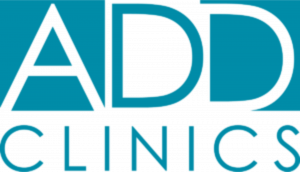Hormonal Fluctuations May Influence ADD Symptoms Differently in Women and Men, Says Gulfport Physician
Dr. Stanford Owen, founder of ADD Clinics in Gulfport, Mississippi, addresses this emerging area of concern. “Hormonal shifts can amplify or mask core ADD symptoms,” said Dr. Owen. “This is particularly evident in women during key reproductive milestones, such as menstruation, pregnancy, and menopause, where estrogen and progesterone interact with neurotransmitters tied to attention and impulse control.”
ADD Clinics, under the direction of Dr. Owen, provides evaluation and treatment for patients across all age groups, with an emphasis on identifying gender-specific presentations that may be overlooked using traditional assessment models.
Estrogen, Dopamine, and Attention Regulation
Estrogen is known to influence dopamine activity—a neurotransmitter central to focus, motivation, and executive function. In women, fluctuating estrogen levels can modulate dopamine transmission, which may impact attention span, working memory, and emotional regulation. During the luteal phase of the menstrual cycle, when estrogen drops and progesterone rises, many female patients report worsening of inattentive symptoms and decreased tolerance for distraction.
In contrast, men experience more stable hormonal patterns throughout their lifetime. Testosterone levels decline gradually over time, which may lead to subtle changes in mood or concentration, but do not typically produce the cyclical symptom changes reported in females.
Menstrual Cycle and Symptom Variability
For women with ADD, symptom tracking often reveals noticeable changes across the menstrual cycle. Many report a spike in distractibility, restlessness, and mood swings in the days leading up to menstruation. These symptoms may mirror premenstrual syndrome (PMS), but for those with ADD, they are typically more severe and disruptive.
Research suggests that lower estrogen levels can reduce the efficacy of stimulant medications commonly prescribed for ADD. This may require personalized dosage adjustments or supplemental non-stimulant strategies during certain phases of the cycle.
Pregnancy and Postpartum Impacts
Pregnancy introduces another layer of complexity. While some women report improved focus during the second trimester due to elevated estrogen levels, others struggle with concentration and mental fog. The postpartum period, marked by a steep drop in estrogen and progesterone, is associated with both mood disorders and ADD symptom exacerbation.
For individuals with pre-existing ADD, this period may include increased disorganization, emotional reactivity, and memory lapses. For others, undiagnosed ADD may only become apparent after childbirth, when hormonal instability and new caregiving demands reveal attention regulation challenges for the first time.
Menopause and Midlife ADD in Women
Menopause marks a significant hormonal transition, with sustained declines in estrogen and progesterone. For women with ADD, this can be a turning point—symptoms that were once manageable may become more prominent. Difficulty with multitasking, increased forgetfulness, and emotional sensitivity are often reported.
In some cases, ADD symptoms during perimenopause are misattributed to cognitive aging or mood disorders, delaying accurate diagnosis. These shifts often call for reevaluation of treatment plans, particularly if stimulant medications that once provided symptom control are no longer effective.
Symptom Presentation in Men
While hormonal fluctuations are less pronounced in men, ADD can present differently due to social and neurological factors. Hyperactivity and impulsivity are more commonly reported in male patients, often resulting in earlier diagnosis during childhood. In adulthood, men may experience chronic restlessness, irritability, or difficulty maintaining focus in structured environments.
Gradual changes in testosterone may influence mood regulation, sleep quality, and motivation over time. While not as dynamic as female hormonal shifts, these changes can still compound executive dysfunction and warrant clinical attention.
Clinical Considerations for Treatment
Understanding the role of hormones in ADD presentation has implications for diagnosis and treatment. Traditional assessment tools may not fully capture cyclical or gender-specific symptom patterns. Incorporating hormonal history, cycle tracking, and age-related hormonal shifts into the diagnostic process allows for more accurate treatment planning.
“Many female patients are either misdiagnosed or underdiagnosed because their symptoms don’t match the hyperactive male stereotype,” said Dr. Owen. “Awareness of hormonal influences allows clinicians to better tailor both medication and behavioral interventions.”
Future Directions
Ongoing research continues to explore how hormonal regulation affects neurodevelopmental conditions like ADD. Collaborative efforts between endocrinologists, psychiatrists, and primary care physicians are essential to refining treatment approaches that consider gender differences, hormonal health, and long-term outcomes.
At ADD Clinics, efforts are made to bridge these gaps by offering comprehensive assessments that reflect both neurological and physiological influences on attention-related conditions.
Morgan Thomas
Rhino Digital, LLC
+1 504-875-5036
email us here
Visit us on social media:
Facebook
Legal Disclaimer:
EIN Presswire provides this news content "as is" without warranty of any kind. We do not accept any responsibility or liability for the accuracy, content, images, videos, licenses, completeness, legality, or reliability of the information contained in this article. If you have any complaints or copyright issues related to this article, kindly contact the author above.
Peaking Power Plant Market Size to Nearly Double to $89 Billion by 2034, Growing at 7.5% CAGR
Upcoming National Senior Citizens Day: Equity Access Group Reaffirms Its Commitment to Helping Seniors Age in Place
Reclaim247 Expands Car Finance Claims Service Amid Surge in Consumer Reviews of PCP Agreements
Więcej ważnych informacji
 Jedynka Newserii
Jedynka Newserii

 Jedynka Newserii
Jedynka Newserii

Ochrona środowiska

A. Bryłka (Konfederacja): Ograniczenie emisyjności nie musi się odbywać za pomocą celów klimatycznych. Są absurdalne, nierealne i niszczące europejską gospodarkę
W lipcu br. Komisja Europejska ogłosiła propozycję nowego celu klimatycznego, który zakłada ograniczenie emisji gazów cieplarnianych o 90 proc. do 2040 roku w porównaniu do stanu z 1990 roku. Został on zaproponowany bez zgody państw członkowskich, w przeciwieństwie do poprzednich celów na 2030 i 2050 rok. Polscy europarlamentarzyści uważają ochronę środowiska i zmiany w jej zakresie za potrzebne, jednak nie powinny się odbywać za pomocą nieosiągalnych celów klimatycznych.
Polityka
Dramatyczna sytuacja ludności w Strefie Gazy. Pilnie potrzebna dobrze zorganizowana pomoc humanitarna

Według danych organizacji Nutrition Cluster w Strefie Gazy w lipcu br. u prawie 12 tys. dzieci poniżej piątego roku życia stwierdzono ostre niedożywienie. To najwyższa miesięczna liczba odnotowana do tej pory. Mimo zniesienia całkowitej blokady Strefy Gazy sytuacja w dalszym ciągu jest dramatyczna, a z każdym dniem się pogarsza. Przedstawiciele Polskiej Akcji Humanitarnej uważają, że potrzebna jest natychmiastowa pomoc, która musi być dostosowana do aktualnych potrzeb poszkodowanych i wsparta przez stronę izraelską.
Polityka
Wśród Polaków rośnie zainteresowanie produktami emerytalnymi. Coraz chętniej wpłacają oszczędności na konta IKE i IKZE

Wzrosła liczba osób, które oszczędzają na cele emerytalne, jak również wartość zgromadzonych środków. Liczba uczestników systemu emerytalnego wyniosła w 2024 roku ponad 20,8 mln osób, a wartość aktywów – 307,5 mld zł – wynika z najnowszych danych Urzędu Komisji Nadzoru Finansowego (UKNF). Wyraźny wzrost odnotowano w przypadku rachunków IKE i IKZE, na których korzyść działają m.in. zachęty podatkowe. Wpłacane na nie oszczędności są inwestowane, a tym samym wspierają gospodarkę i mogą przynosić atrakcyjną stopę zwrotu.
Partner serwisu
Szkolenia

Akademia Newserii
Akademia Newserii to projekt, w ramach którego najlepsi polscy dziennikarze biznesowi, giełdowi oraz lifestylowi, a także szkoleniowcy z wieloletnim doświadczeniem dzielą się swoją wiedzą nt. pracy z mediami.









.gif)

 |
| |
| |
|